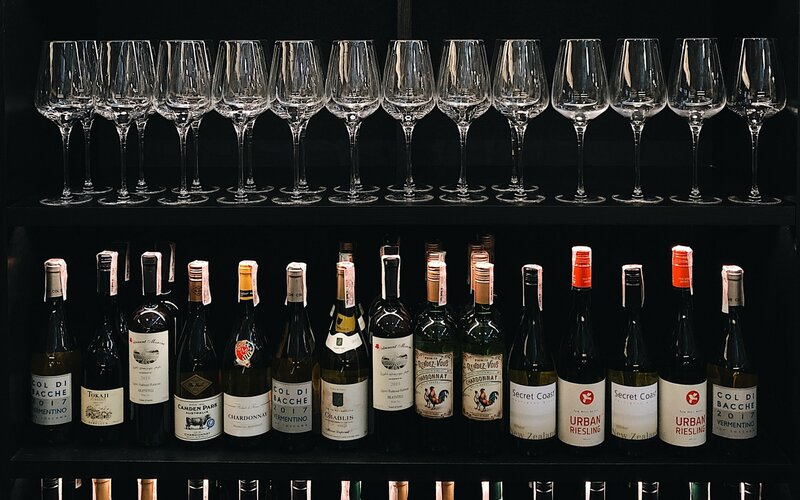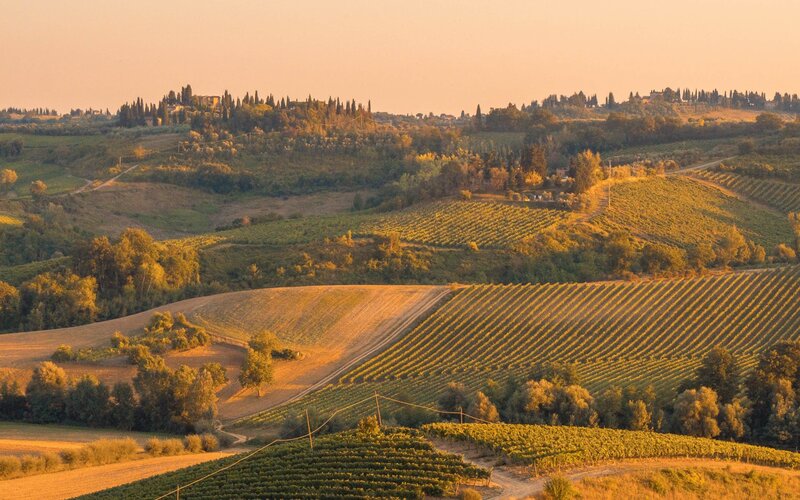
From viticulturists and vineyard managers to commercial buyers and producers, the world of wine has created many jobs in its time. And one of the most beloved is the sommelier.
Equipped with knowledge and ready to swoop in when we don’t know which wine to choose, a good sommelier has rescued many of us at times when our own wine knowledge hasn’t been quite up to scratch.
If you’ve ever wondered how to become a sommelier, you’re in the right place. Read on to find out.

What is a sommelier?
In short, a sommelier is a trained wine professional. They have a large breadth and depth of knowledge of wine – from how it should be served to the perfect pairings with food, and they can identify the unique qualities of different grape varieties and what regions of the world these grapes thrive in for winemaking.
A sommelier has plenty of responsibilities. Many will work in fine dining establishments and will be in charge of planning wine menus, ordering and maintaining stock, and educating customers.
Others may work in vineyards, at wine-tasting events, or may even teach their craft through seminars, lectures or workshops. It really depends on the career path they choose. Some even go on to become world-renowned wine writers and critics like Jancis Robinson.
Sommeliers need to know a vast amount about the world of wine – its history, its geography, the ins and outs of viticulture and practical knowledge of the tasting experience.
But as the sector continues to evolve in light of changing climates and popular trends gaining frictiontraction (think vegan wine, biodynamic wine and orange wine), it’s important for a sommelier to keep their finger on the pulse of the latest shifts in the industry too. As renowned wine critic Jancis Robinson points out in her online wine course, “every year wine producers in the world seem to be making better and better wine, without any faults but with more character”.

How to become a sommelier
Anyone can become a sommelier. Gaining the right knowledge and good experience can be enough to be recognised as one but if you want to become a certified sommelier, there are many courses out there that can help elevate your status in the profession. Whatever level you want to achieve, there are plenty of routes to get you there. Let’s dive into some of them now.
Getting experience
If you’re starting out in your career, gaining experience in the hospitality sector will give you valuable insight into the industry and equip you with skills that will see you through your sommelier career.
Working alongside kitchen and bar staff can enrichen your knowledge base on food and beverages. You could even focus on finding similar roles at wine bars or vineyards. Many sommeliers go full circle – starting off working in restaurants and bars, and ending up back in them with a sommelier status once they’ve achieved it.
There is only one circumstance in which I would expect someone to tell me the perfect wine to drink with a given dish. And that’s if I were ever in an absolutely tip-top restaurant, whose menu doesn’t change, that has a qualified wine waiter (a sommelier), who knows the dishes by heart and knows what’s in the cellar by heart, and should be able to suggest to me three different perfect wines with each dish at different price levels.
Jancis Robinson
Delve into the wine map
Vital to becoming a sommelier is understanding the many wine regions of the world and what makes them so special. Getting to grips with these will set the foundation for your learning experience. Discovering the many varieties of grapes grown across the four continents and how the conditions of certain climates are optimal for that grape to grow is important.
As is unlocking the histories of the world’s legacy regions – Bordeaux, Burgundy, Tuscany and the Napa Valley. It’s in those histories that you can find winemaking in its simplest form and learn what the industry has had to overcome to still thrive today. Don’t forget to explore some of the up-and-coming regions too. Thanks to growing consumer interest, climate change, new wine producers and more investment into the sector, new pockets of viticulture are cropping up all over the map today.

Get tasting
Never been to a wine tasting? Now’s the time to try it. From your wine region research, you may have an understanding of some of the distinctive qualities of wine from a particular region. Perhaps it’s a floral note in taste that gives it away, or a slightly gritty texture from the tannins that set it apart. Whatever it is, make a conscious effort to note what qualities various wines have that separate them from others. And what food pairings they go with. Perhaps it’s a warm red that pairs wonderfully with duck? Training your palette to recognise complementary flavours or ingredients will really help you develop as a sommelier.
But don’t stop at the one tasting event. Try a variety of them. You could explore a wine-tasting workshop or conference and even take a vineyard tour. It’s worth exploring the offerings of your local wine shop too. They may be able to recommend a few wines to try yourself at home with friends and family. You could even host your own tasting event with our wine tasting template.

Earn certification
There are plenty of sommelier courses out there suitable for all levels of expertise. It depends on where you are in the world and what type of role you’d like to qualify for. You can find country-specific qualifications or certifications that are internationally recognised.
One of the most globally recognised awards is the Master Sommelier Diploma, awarded by an educational organisation called The Court of Master Sommeliers. Its mission is to improve and uphold the standards of beverage service by sommeliers. According to Wine Enthusiast, only 269 professionals have earned the master sommelier distinction since its inception in 1969.
The general course for sommelier exams follows the same path. Candidates go from a novice to an introductory sommelier, then to a certified sommelier onto an advanced sommelier. Then you can take the final exam to become a master sommelier.
Other well-known awarding bodies include The Worldwide Sommelier Association, which provides thousands of budding sommeliers with professional certifications each year. But if the prestige of global certification doesn’t inspire you, many colleges and institutions also have sommelier tailored courses such as a diploma in wine, gastronomy and management or degrees in viticulture or wines studies.
You may be asking yourself how long does it take to become a sommelier? Well, that depends on what your aims are. Whether it’s a hobby you nurture on the side of your day job, or you’re chasing that Master Sommelier status, it can take anywhere from 1 year to quite a few. It’s never too late to start though.
If you’re keen to learn more about the world of wine, take a look at Jancis Robinson’s BBC Maestro course An Understanding of Wine.

Give the gift of knowledge
Surprise a special someone with a year's access to BBC Maestro or gift them a single course.





